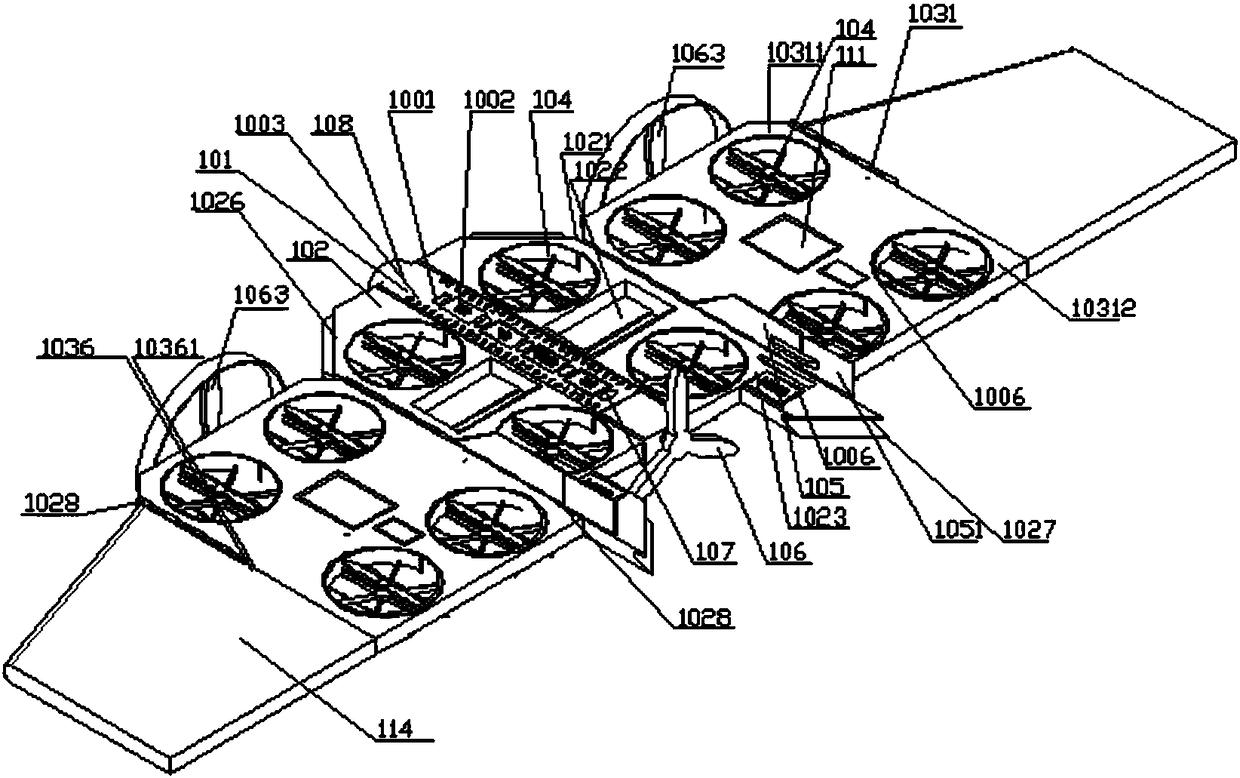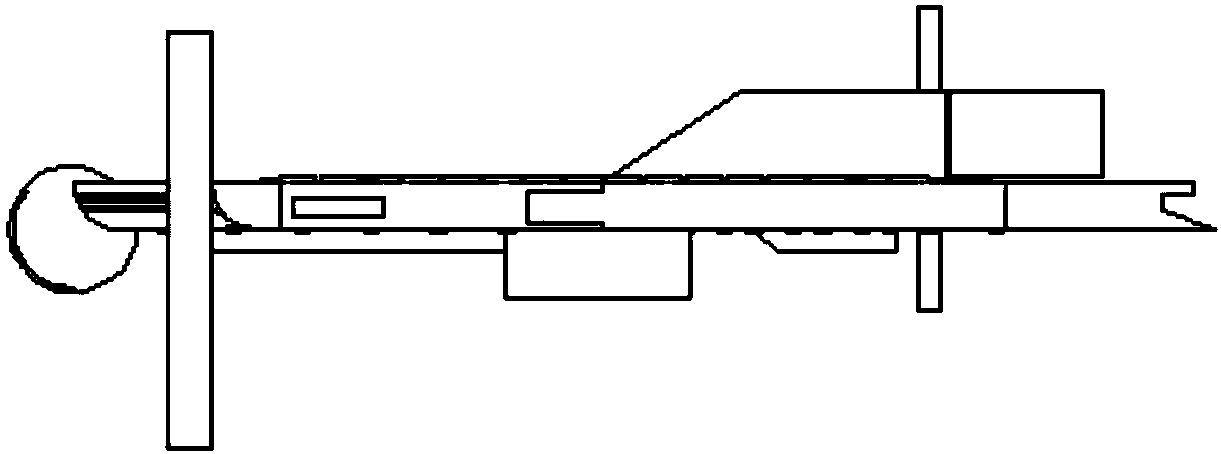Rear single-paddle type compound wing airplane with twin-duct thrust compound auxiliary wings and additional wings
A composite wing and auxiliary wing technology, applied in the field of aircraft, can solve the problems of low wing structure strength, slow horizontal flight speed, and unsatisfactory controllability, etc., and achieves expansion of wing area, fast flight speed, and improved lift. Effect
- Summary
- Abstract
- Description
- Claims
- Application Information
AI Technical Summary
Problems solved by technology
Method used
Image
Examples
Embodiment Construction
[0035] The present invention will be further described below in conjunction with the accompanying drawings.
[0036] Such as Figure 1 to Figure 5 As shown, the rear single-screw compound wing aircraft with double-ducted thrust compound ailerons and additional wings includes rear single-propeller compound wing aircraft, propeller thrust self-powered compound ailerons assembled on both sides of its wings, and additional wings 114; wherein, the rear single propeller compound wing aircraft includes a body 101, a compound lift wing 102 fixedly installed on both sides of the body 101, and a propeller 106; wherein, the body 101 is set as a deck platform; the The compound lift wing 102 has a built-in self-enclosed ducted fan 104, and the outside of the compound lift wing 102 is designed with a wing hinge 1028; the front end of the propeller thrust self-powered compound auxiliary wing is provided with a ducted fan propeller 1063, and the propeller thrust is self-powered. A self-enclo...
PUM
 Login to View More
Login to View More Abstract
Description
Claims
Application Information
 Login to View More
Login to View More - R&D
- Intellectual Property
- Life Sciences
- Materials
- Tech Scout
- Unparalleled Data Quality
- Higher Quality Content
- 60% Fewer Hallucinations
Browse by: Latest US Patents, China's latest patents, Technical Efficacy Thesaurus, Application Domain, Technology Topic, Popular Technical Reports.
© 2025 PatSnap. All rights reserved.Legal|Privacy policy|Modern Slavery Act Transparency Statement|Sitemap|About US| Contact US: help@patsnap.com



